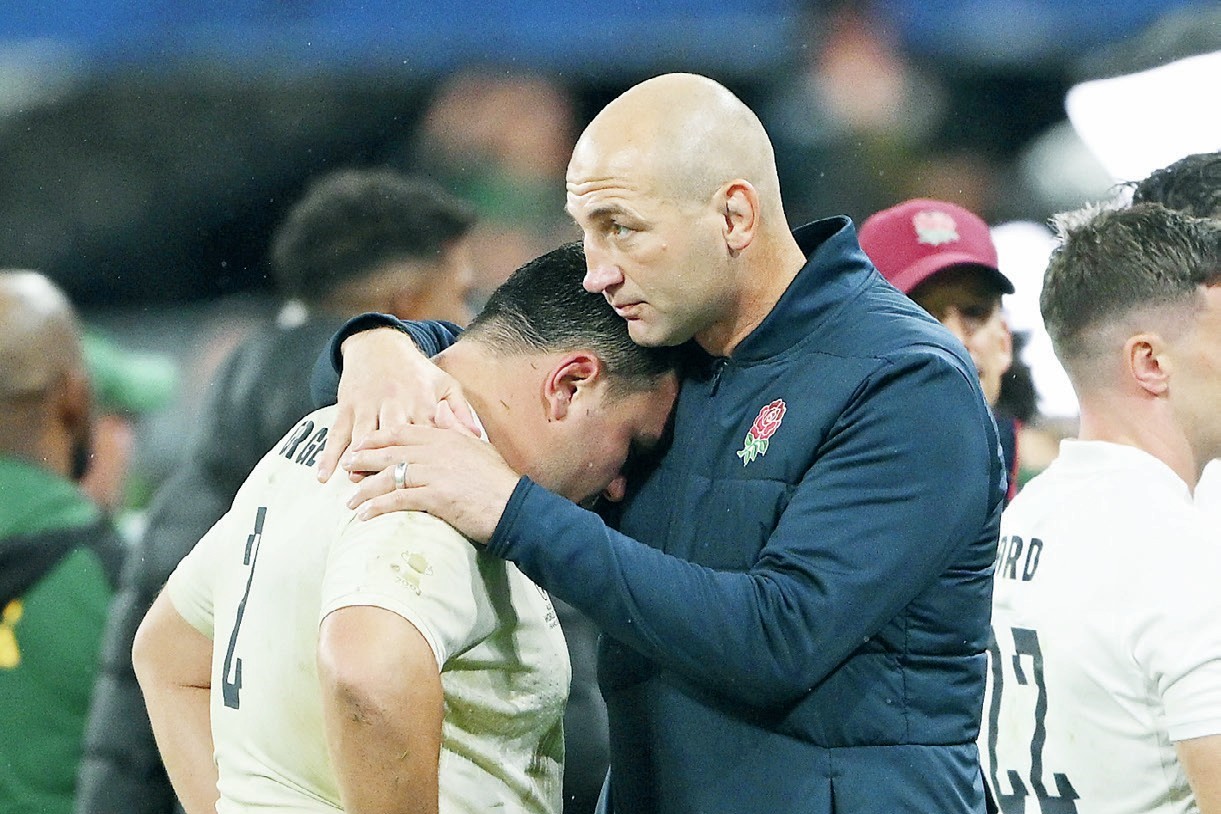George has inspired England improvement – Dawson

1748968244
Former England captain and scrum-half Matt Dawson has praised skipper Jamie George as the “catalyst” for the country’s recent turnaround, and backed his former club Northampton’s duo of Alex Mitchell and Fin Smith to play together at international level.
World Cup winner Dawson feels it was George who would have driven the improved style of play that England displayed in their final two games of the Six Nations, rather than coach Steve Borthwick.
With Borthwick having implemented a more kick-dominated style throughout 2023 and into the first three games of the tournament, Dawson believes the Saracens hooker would have rallied senior players to encourage the change the way they attacked.
So extreme was the improvement in England’s offensive performance that they scored seven tries across their final two games against winners Ireland and runners-up France, having only managed five in the three games against the teams in the bottom half of the championship.
“I do genuinely think that Jamie George has been the catalyst in all of this,” he said, speaking on The Rugby Paper Podcast. “I know that also connects with the fact that Owen Farrell isn’t in the squad and has moved on, but I really do think that George has been instrumental.
“There is not a chance that Steve Borthwick has all of a sudden changed what he’s been doing for over a year. We all know what he’s like, we all know what he’s good at and has been good at for his entire career. He’s not going to turn around and suggest that England play like they have in the latter part of this Six Nations.
“If I was putting my player hat on, I think just some of those senior players, led by Jamie have probably had a little moment and thought: ‘I can’t go through the next cycle playing like this, I don’t want to.’
“I think something’s triggered Jamie to think that nothing’s going to happen with the way that we’re playing, we’ve got the talent – that we’ve always had – let’s use it. I just don’t think Steve would have any answer to four or his five top players saying: ‘Something’s got to change’.”
At the centre of England’s upturn has been scrum-half Mitchell, who had initially missed out on their World Cup squad before being drafted in due to an injury to Jack van Poortvliet, subsequently making the nine shirt his own.
Dawson has been impressed with Mitchell’s well-rounded abilities which he feels gives him an edge amongst English scrum-halves, and credited Borthwick for changing his mind about him and number eight Ben Earl to give them prominent roles in the team.
“He has a bit of everything,” Dawson added. “Mitch just has a real instinct for the game that puts him on a slightly different level than any other scrum-half in England at the moment.
“He probably should’ve been playing for England a year or two earlier but Eddie [Jones] didn’t really see it.
“Knowing each other as they do, Eddie and Steve would have been communicating a lot and had the same views on the same players like Earl and Mitchell, so fair play to Steve for changing his tune. It’s a great skill not to be stubborn about players.”
George Ford is currently outside Mitchell in the number ten shirt, but looking ahead to the next World Cup in 2027 it is expected that either Harlequins’ Marcus Smith, or his Northampton namesake Fin, will start at fly-half for that tournament.
Once again the 2003 World Cup winner gives the Saints man the edge, feeling that he has a more measured and tactical approach to the game than Marcus – who Dawson fears lacks the temperament of previous World Cup winning fly-halves with his tendency to over-celebrate and let emotions take over in key moments.
“It’s going to be a good tussle,” he said. “One that will hopefully last a few years.”
“I think the one key difference, which will be in Fin’s favour, is that you would struggle to name a maverick fly-half who has won the World Cup. It sounds ridiculous but although Marcus is phenomenal, it worries me that there are too many moments in games where his adrenaline and heart rate go absolutely through the roof.
“Whether he scores a try, or the team score, or there’s a big moment he’s whooping and hollering. No, you’re the general, what’s next? If you’ve scored the try, kick the conversion, move on.
“I see more of that mindset in Fin. I see that analytical, strategic fly-half who still has the capabilities to deliver. He seems to have that sort of flow of the game and then is able to repeat and repeat.
“If you’re asking me for a difference, that’s quite a significant one for me.”
Stream this week’s episode of The Rugby Paper Podcast on YouTube (also above), Apple, Spotify (also below), Castbox, Google Podcasts, or your favourite podcast app.
For exclusive stories and all the detailed rugby news you need, subscribe to The Rugby Paper website, digital edition, or newspaper from as little as 14p a day.